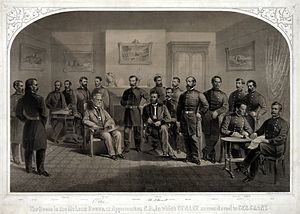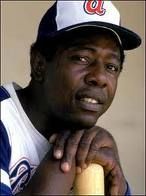“Punting the Pundits” is an Open Thread. It is a selection of editorials and opinions from around the news medium and the internet blogs. The intent is to provide a forum for your reactions and opinions, not just to the opinions presented, but to what ever you find important.
Thanks to ek hornbeck, click on the link and you can access all the past “Punting the Pundits”.
Follow us on Twitter @StarsHollowGzt
John Nichols: How Many FDR Democrats Will Oppose ‘Chained-CPI’ Social Security Cut?
US Senator Bernie Sanders, Congressman Mark Takano and leaders of organizations that oppose President Obama’s anticipated assault on Social Security will go to the White House Tuesday to present petitions signed by more than one million Americans who reject the president’s proposal for “chained-CPI.”
The “chained-CPI” scheme would restructure cost-of-living adjustments in a way that cuts Social Security benefits for millions of seniors and veterans.[..]
The advocacy is important, as Obama has yet to submit his budget. Senator Tom Harkin, D-Iowa, couples his outspoken opposition to the “chained-CPI” proposal with a message, “It’s not too late to stop this.”
It is the hope that Harkin is right that has inspired the dramatic response to news of the president’s proposal. Americans really are, as Democracy for America’s Jim Dean notes, rising up in passionate opposition to any cut in Social Security-but, especially, to a cut proposed by a Democratic president.
Robert Reich: The Stealth Sequester
So far, the much-dreaded “sequester” — some $85 billion in federal spending cuts between March and September 30 — hasn’t been evident to most Americans.
The dire warnings that had issued from the White House beforehand — threatening that Social Security checks would be delayed, airport security checks would be clogged, and other federal facilities closed — seem to have been overblown.
Sure, March’s employment report was a big disappointment. But it’s hard to see any direct connection between those poor job numbers and the sequester. The government has been shedding jobs for years. Most of the losses in March were from the Postal Service.
Take a closer look, though, and Americans are starting to feel the pain. They just don’t know it yet.
Last week India’s Supreme Court rejected the Swiss pharmaceutical company Novartis’ patent on the cancer drug Gleevec. While the immediate issue was the ability of Novartis to charge its patent-protected price for the drug in India, the decision will have an enormous impact on the future of public health not only in India, but around the world.
The key issue is whether we will follow a pattern in which patent monopolies are continually lengthened and strengthened. This has been the goal of the U.S. government in trade negotiations led by both Democratic and Republican presidents. The TRIPs provisions of the Uruguay Round of the WTO negotiations were the clearest manifestation of this drive. These provisions, which were added at the request of the U.S. pharmaceutical industry, require countries throughout the world to adopt U.S.-type patent laws. In addition, the United States has sought to further strengthen patent protections in all the bilateral and multilateral trade agreements that it has negotiated over the last two decades.
Ira Chernus; Social Security Cuts: More Than Money At Stake
I’m old enough to remember when Social Security was the “third rail” of American politics — too dangerous for even the most conservative politician to touch. You’re probably old enough to remember that, too. It wasn’t very long ago. As recently as the 2012 Republican primaries, Mitt Romney defended Social Security against attacks from other candidates (notably Rick Perry), and Romney emerged the GOP standard-bearer.
How things have changed in just a year. It’s not merely that a Democratic president is offering, very publicly, to cut Social Security benefits. There’s something much more important: In the mainstream of American political conversation, this revelation was not treated as very big news.
Jared Berstein: Underemployment Is Also the Right Target (Not Just Unemployment)
If we wanted to target the persistent slack in the labor market, though I can’t see any signs that we do, we shouldn’t just target the unemployment rate; we should also go after the underemployment rate. Since it captures the important dimension of not just do you have a job, but are you getting the hours of work you want, it’s a more comprehensive measure of the extent to which workers are underutilized — i.e., slack — in the labor market.
The difference is pretty well known by now: the underemployment rate includes various groups of underutilized workers or job seekers who are left out of the official rate. The largest difference is the inclusion of part-time workers who would rather have full-time jobs. Most recently, there were about eight million such folks, elevating this measure of underutilization to around 14 percent compared to about 8 percent for unemployment (2013Q1). Other components of this rate include discouraged workers who’ve recently looked for work but given up, and some other smaller groups that are neither working nor looking for work but remain marginally attached to the job market.
David Sirota: Suddenly, NYPD Doesn’t Love Surveillance Anymore
Law enforcement agencies monitor our most basic acts. But try assigning them a watchdog and they resist with fury.
The Big Brother theory of surveillance goes something like this: pervasive snooping and monitoring shouldn’t frighten innocent people, it should only make lawbreakers nervous because they are the only ones with something to hide. Those who subscribe to this theory additionally argue that the widespread awareness of such surveillance creates a permanent preemptive deterrent to such lawbreaking ever happening in the first place.
I don’t personally agree that this logic is a convincing justification for the American Police State, and when I hear such arguments, I inevitably find myself confused by the contradiction of police-state proponents proposing to curtail freedom in order to protect it. But whether or not you subscribe to the police-state tautology, you have to admit there is more than a bit of hypocrisy at work when those who forward the Big Brother logic simultaneously insist such logic shouldn’t apply to them or the governmental agencies they oversee.
This contradiction is now taking center stage in New York City, as Mayor Michael Bloomberg and New York City police commissioner Raymond Kelly wage a scorched-earth campaign to prevent the public from being able to monitor its own police force. And in that crusade comes the frightening assumption about how the terms “safety” and “security” are now defined.


 On this day in 1974,
On this day in 1974,  As the 1974 season began, Aaron’s pursuit of the record caused a small controversy. The Braves opened the season on the road in Cincinnati with a three-game series against the
As the 1974 season began, Aaron’s pursuit of the record caused a small controversy. The Braves opened the season on the road in Cincinnati with a three-game series against the  On this day in 1948,
On this day in 1948,  Welcome to the Stars Hollow Health and Fitness News weekly diary. It will publish on Saturday afternoon and be open for discussion about health related issues including diet, exercise, health and health care issues, as well as, tips on what you can do when there is a medical emergency. Also an opportunity to share and exchange your favorite healthy recipes.
Welcome to the Stars Hollow Health and Fitness News weekly diary. It will publish on Saturday afternoon and be open for discussion about health related issues including diet, exercise, health and health care issues, as well as, tips on what you can do when there is a medical emergency. Also an opportunity to share and exchange your favorite healthy recipes. 
 On this day in 1896,
On this day in 1896,
Recent Comments